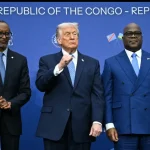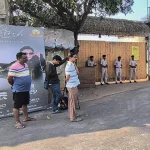In a move that has sent ripples through the Kenyan political landscape, Deputy President Rigathi Gachagua has launched a thinly-veiled verbal assault aimed at former Interior Cabinet Secretary Fred Matiang’i. The remarks, made during a public function, are being widely interpreted as a direct response to Matiang’i’s perceived grooming as a potential presidential candidate for the opposition coalition.
Gachagua’s carefully crafted jab, which alluded to individuals “learning on the job” and lacking a tangible development record, is more than just political point-scoring. It is a strategic maneuver designed to exploit and amplify the visible fissures within the Azimio la Umoja coalition. By targeting Matiang’i, a figure seen as a bridge between various opposition factions, Gachagua is effectively attempting to dismantle the opposition’s unity narrative before the next election cycle even fully begins.
A Strategic Political Calculus
This public confrontation reveals the Kenya Kwanza administration’s perceived threats and their evolving campaign strategy:
-
Identifying the Threat: Matiang’i is viewed as a formidable candidate who could appeal to a significant voter base, particularly from the Kisii community and beyond. Gachagua’s attack is a pre-emptive strike to define the narrative around him early.
-
The Divide and Rule Tactic: By singling out one potential candidate, the DP’s comments could fuel internal competition and jealousy within the opposition ranks, potentially stalling the process of coalescing around a single, strong flagbearer.
-
Shifting the Focus: With current economic challenges, redirecting public attention to opposition squabbles is a classic political diversionary tactic.
The timing and nature of this attack suggest that the battle lines for 2027 are already being drawn in the sand. The opposition’s response—or lack of a cohesive one—will be a critical test of its stability and its ability to present a united front against a clearly strategic and proactive ruling party.









